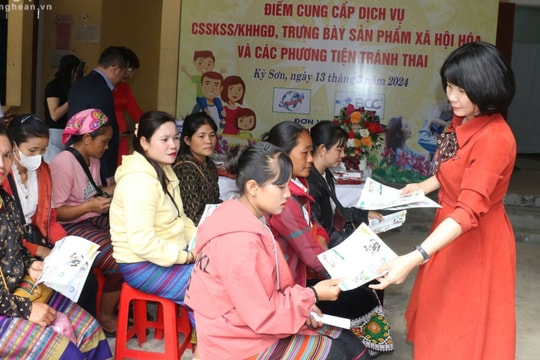400-year-old stone stele and unique Buddha statues in Nghe An
(Baonghean.vn) - Bao Quang Pagoda, also known as Dat Pagoda in Kim Lien Commune, Nam Dan District, is an ancient pagoda that still preserves a 400-year-old stele and unique ancient stone statues.
 |
| According to the pagoda's board of trustees, Bao Quang Pagoda was built at the end of the Tran Dynasty in Ngoc Dinh village, Chung Cu commune, now Kim Lien commune. The pagoda's Vietnamese name is Dat Pagoda. Photo: Huy Thu |
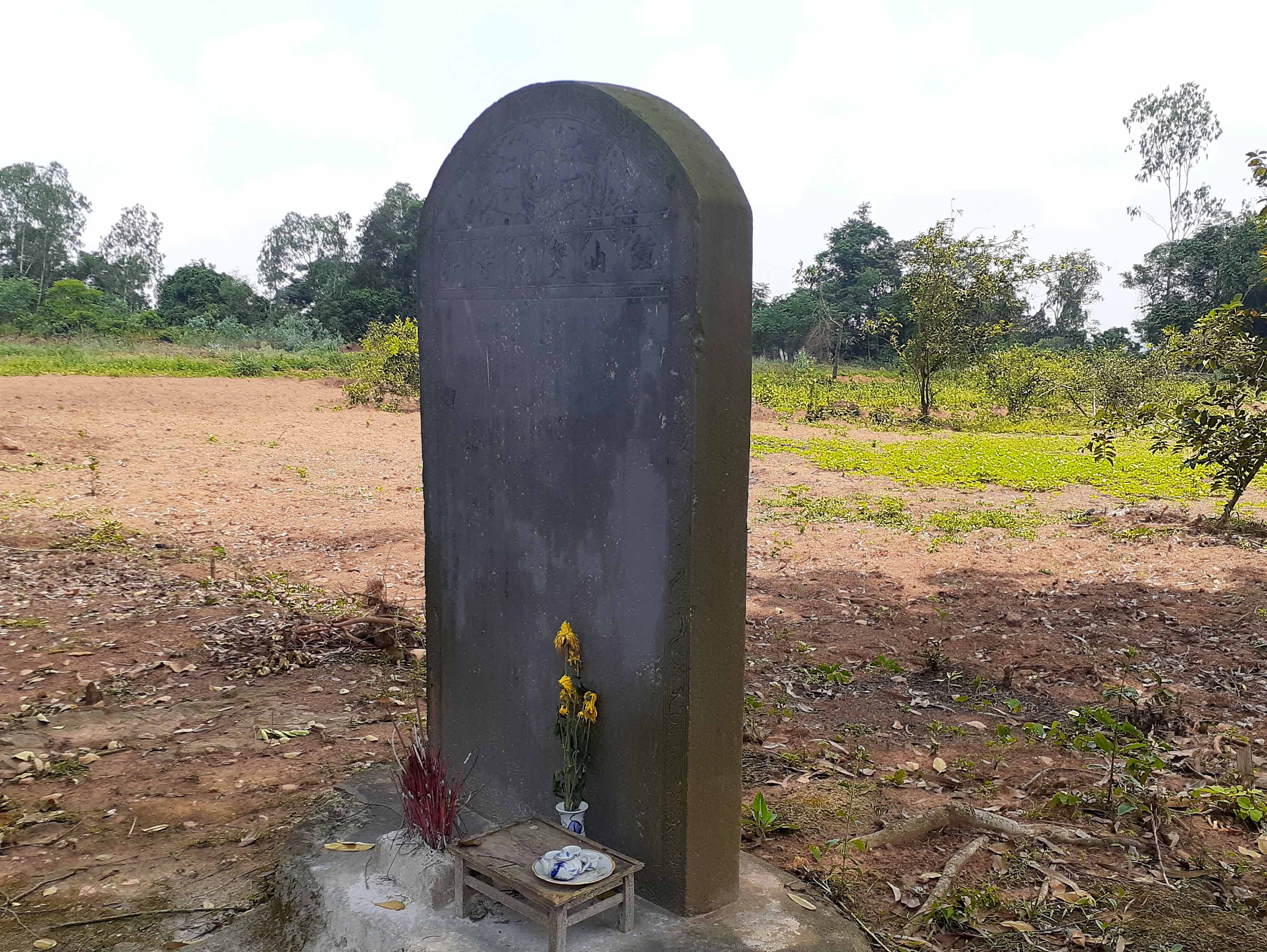 |
| At Dat Pagoda, there is still preserved an ancient stele about 1.6m high, 0.9m wide, erected in front of the pagoda yard. According to documents, the stele was erected during the reign of King Le Than Tong, the 3rd year of Vinh To (1621): "Vinh To, the longest moonlit year of the three valleys", up to now, it has been 400 years. Photo: Huy Thu |
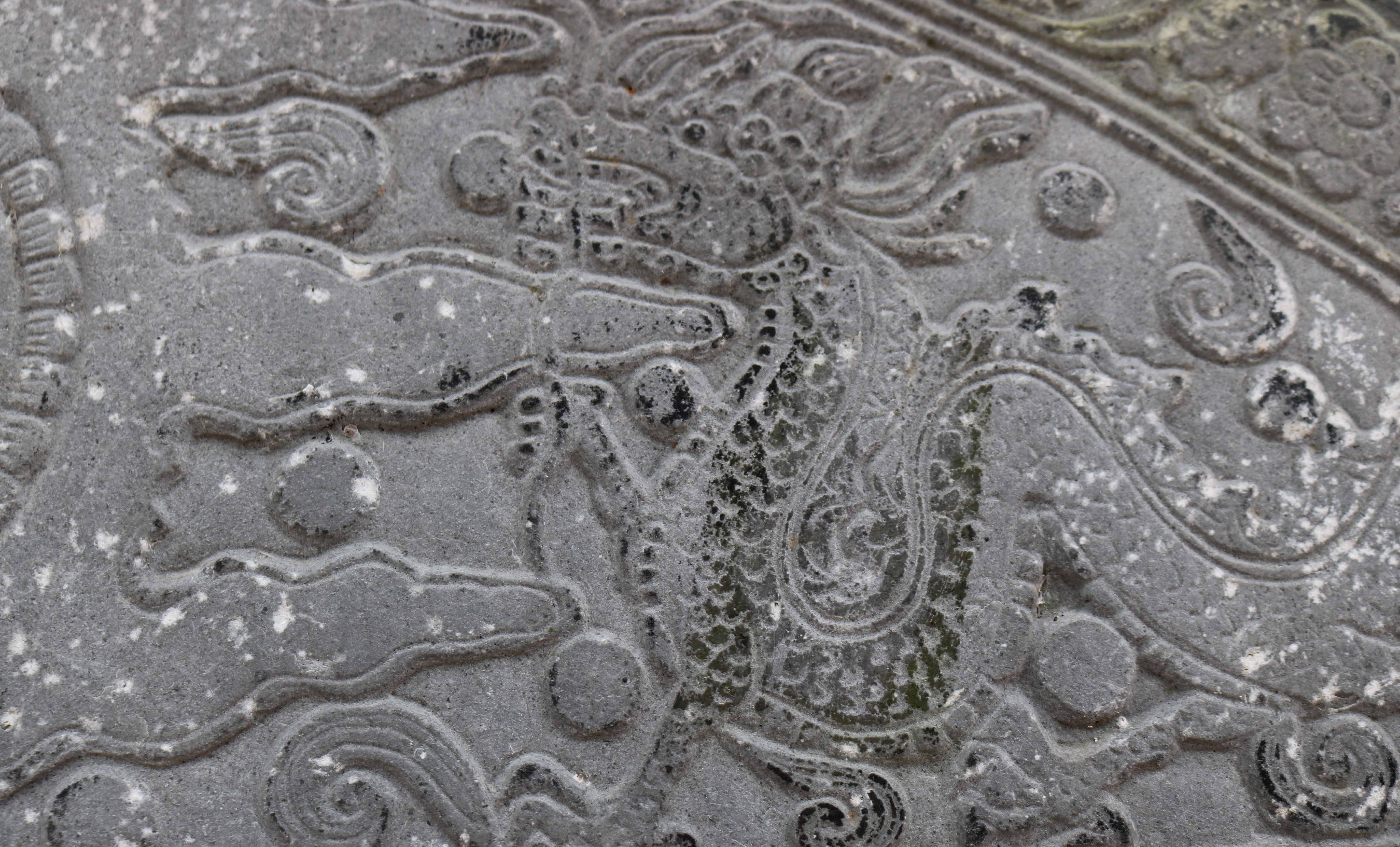


The stele has two sides, the front side is engraved with large Chinese characters: "Chung Son Bao Quang Tu Stele" (Bao Quang Pagoda Stele, Chung Mountain) and on the back is the line "Ten directions of believers give merit”. The border and forehead of the stele are decorated with patterns, images of two dragons facing the sun, and images of water waves, very sophisticated. The front of the stele has 25 lines of text, the back has 11 lines. The entire stele text has about 1,500 Chinese characters, all of which are still sharp. Photo: Huy Thu
 |
| The content of the stele talks about the large-scale restoration of Dat Pagoda in 1617 with its massive architecture. The stele also states that some famous figures of the time, who were children of Nghe An, stood up to restore the pagoda, such as Quang Tien Than Loc Dai Phu Nguyen Hoanh Tai, Do Chi Huy Su Hoang Nghia Phuc or Dung Tri Hau Phu Nhan Hoang Thi Ngoc Bao... The back of the stele records the names of those who donated meritorious services to restore the pagoda. The stele was written byThe Minister of Justice and the Academician of the Eastern Palace, the Imperial Academy's Tutor, Nghia Khe Marquis, Tru Quoc, and Tuyet Duong Nguyen Le Thuan, composed this.The ancient stele of Bao Quang pagoda is a precious artifact, with many values in the study of history, religion, art, etc. Photo: Huy Thu |
 |
| Bao Quang Pagoda still preserves 4 ancient stone statues enshrined on altars built of laterite. According to Ms. Hoang Thi Hoa (68 years old), head of the pagoda's board of trustees, when the pagoda became ruins, most of the ancient statues were lost. Fortunately, after the pagoda was restored, people found 4 ancient stone statues, 3 of which were headless. Photo: Huy Thu |

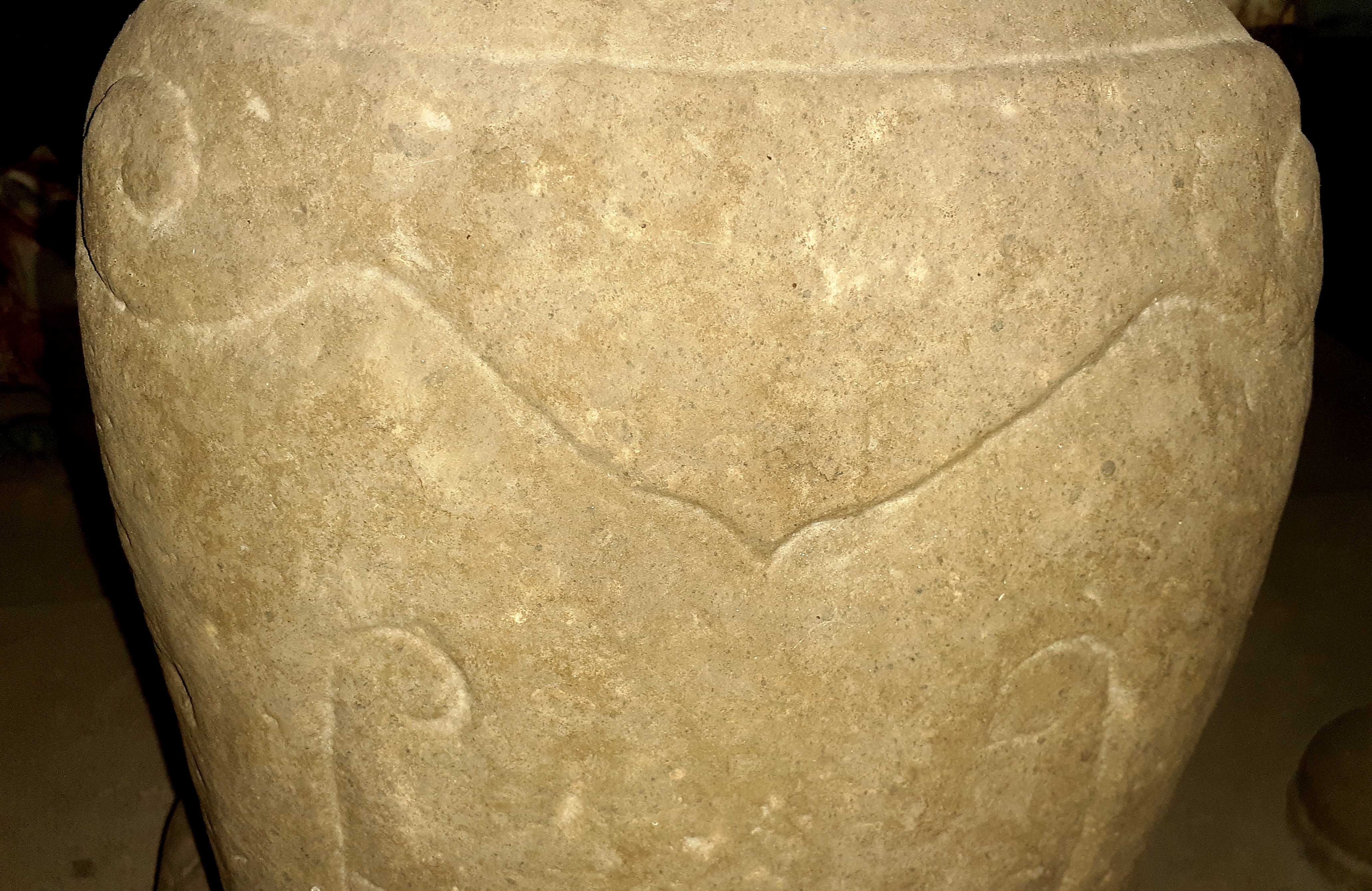

The common point of these statues is that they are carved in a meditative posture, wearing clothes with simple patterns, with two hands crossed on the thighs, and behind the back of each statue there is a round hole about 4 cm deep and 6 cm in diameter. Photo: Huy Thu
 |
| The stone statue with the head is a statue of a meditating Buddha about 0.7m high, one hand on the thigh, one hand raised, facing forward. The statue's layout is balanced and harmonious, with soft lines. Photo: Huy Thu |

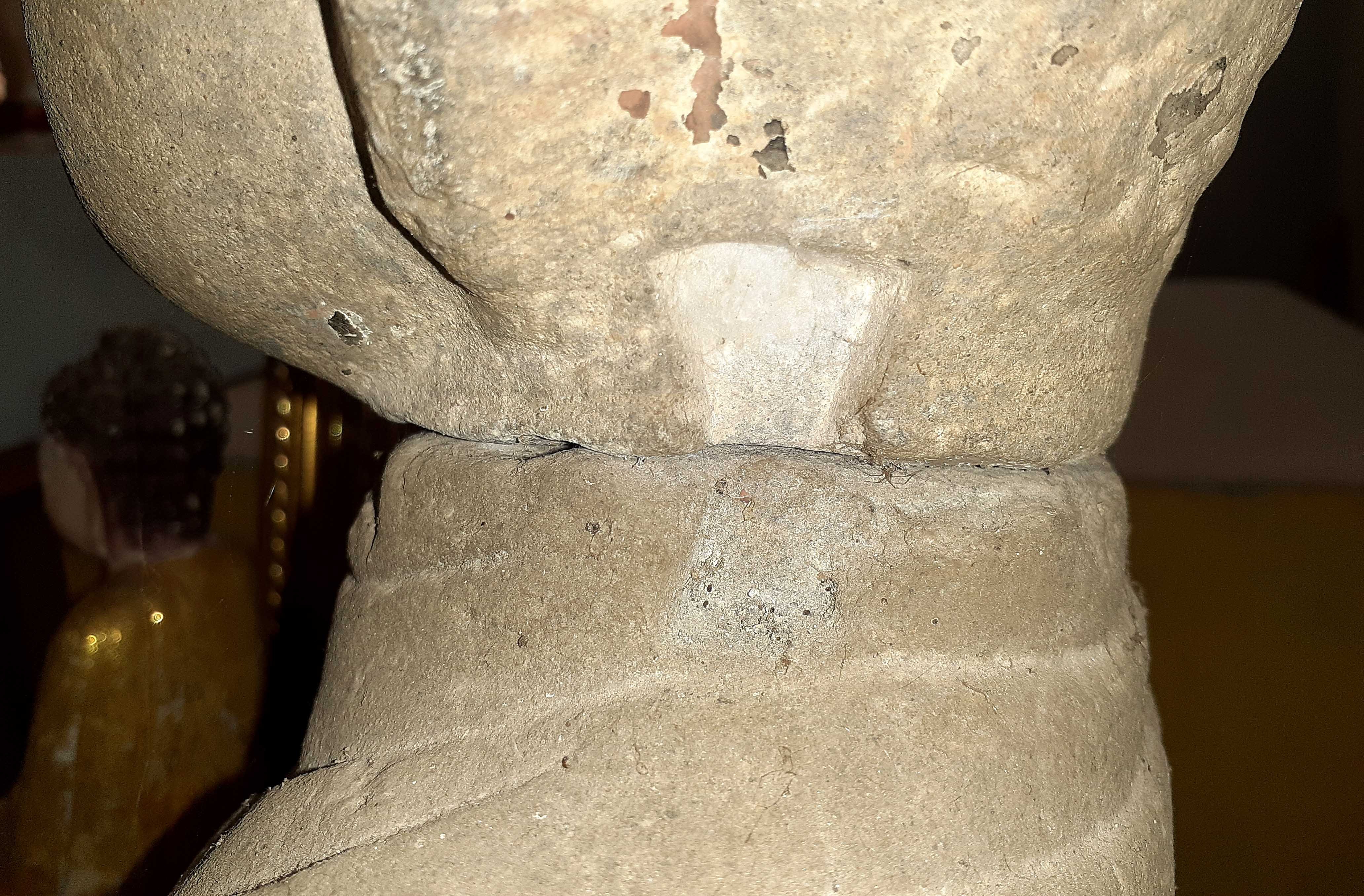

According to Ms. Hoa, this statue was brought back by 2 people from 2 communes. The body of the statue was brought back by a person from Hoang Tru village, Kim Lien commune to put in the garden, then brought the statue back to the pagoda in 2015. The head of the statue was found in the field by a person from Nam Linh commune in 1982. After a period of investigation, they found that Dat pagoda had a stone statue, so they brought the head back and sure enough, when the head was put on the body of the statue, they matched. Photo: Huy Thu
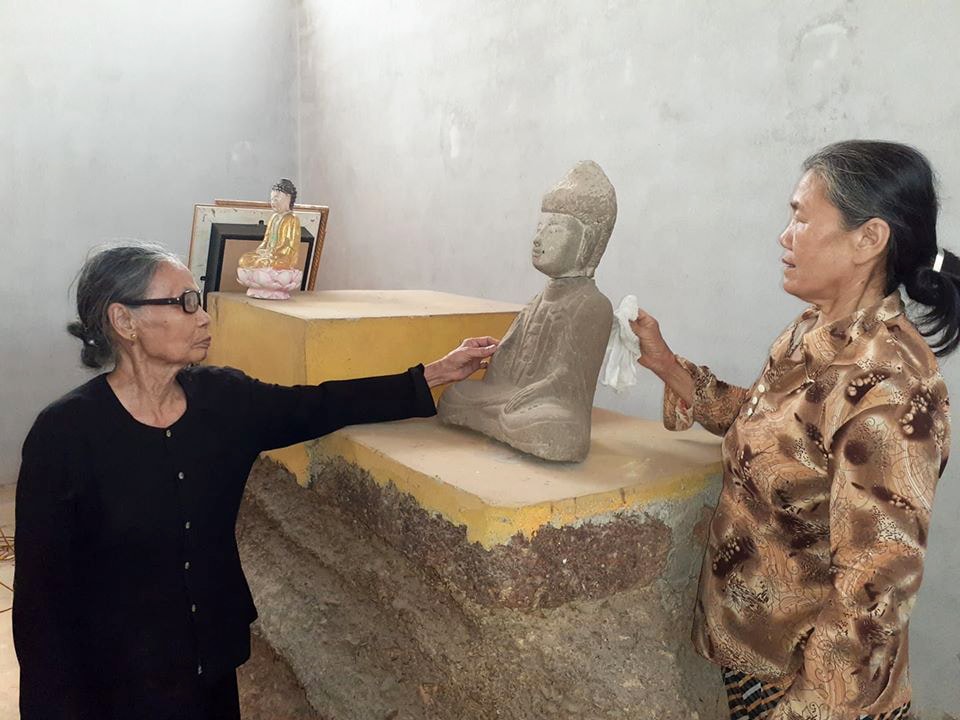 |
A field survey in Nghe An shows that in pagodas that still preserve ancient statues, most of them are wooden statues. It can be said that these are rare ancient stone Buddha statues in our province. Buddhists at Bao Quang pagoda are very excited about this and are always conscious of preserving and protecting ancient statues. Photo: Huy Thu |
 |
| In addition to ancient steles and ancient stone statues, at Bao Quang Pagoda there are also dozens of large, deeply grooved, elaborately carved stone pillars hidden in dense forests. Located in the relic complex on Chung Mountain, Bao Quang Pagoda - Dat Pagoda is a large pagoda, a place with beautiful scenery in Kim Lien: "The most joyful scene is Cau market / above the pagoda below the market, between the bell towers". Photo: Huy Thu |

